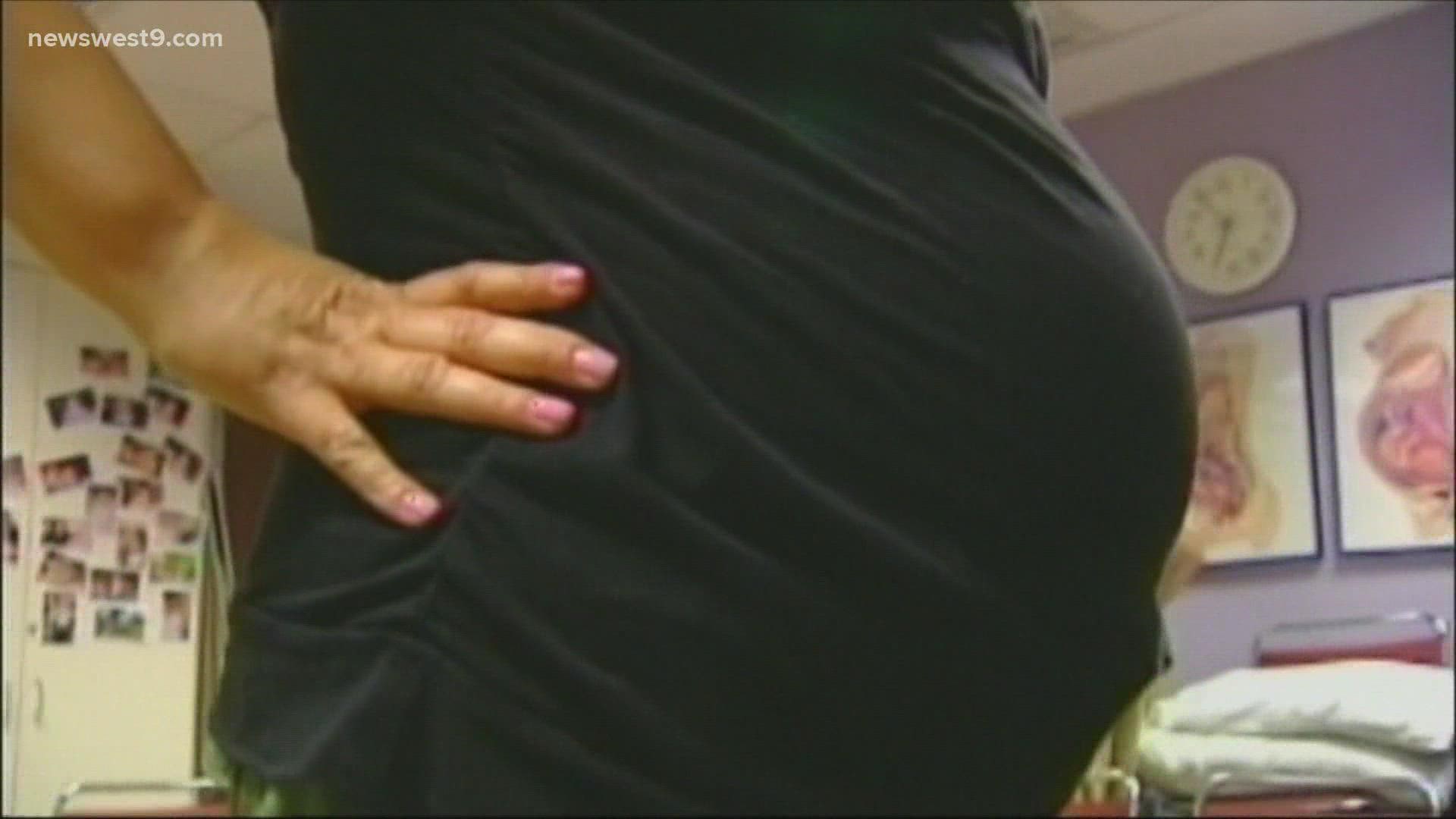MIDLAND, Texas — COVID-19 has shown that it can affect a lot of different people. This includes pregnant women.
One of the big concerns is blood clotting, because not only can blood clots impact the woman, but the unborn baby as well.
Pregnant women do tend to offer some protection from COVID-19 for an unborn child, and even if a newborn does contract COVID-19, cases are typically mild.
"Well actually that newborn probably has some immunity from the mother through placental transfer and also from breast feeding," Debbie Reese, pediatrician at Reese Pediatrics, said. "So the newborns that I’ve had have really been extremely mild."
Some of those symptoms a newborn may exhibit, according to Reese, include a low grade fever, some fussiness and some nasal symptoms.
However, this doesn't mean that unborn children will always be OK if the mother contracts COVID-19.
"One of the COVID problems is an accelerated clotting, so the obstetricians are really worried that this delta variant may be affecting pregnant women in a more serious fashion than the non-delta variant," Reese said.
This is specifically the case when it comes to making sure that the unborn child gets sufficient blood supply, which clotting can prevent.
"With these babies, it can cause clots in the placenta, which interferes with blood supply to the baby," Reese said.
In order to protect the child, this is one of the reasons that doctors are recommending that pregnant women try to get vaccinated if possible.
"The American College of Obstetrics and Gynecology has now recommended that all pregnant women get the COVID vaccine no matter what your trimester, and they’re even giving it to women as they leave the hospital because immediately postpartum there’s a risk of higher clotting," Reese said.

